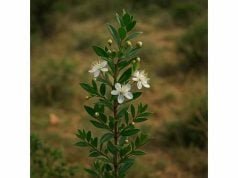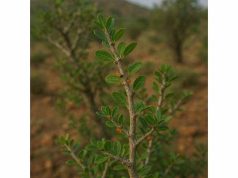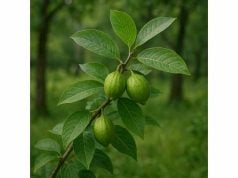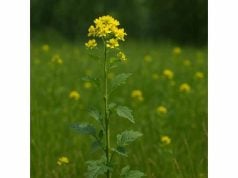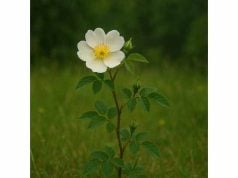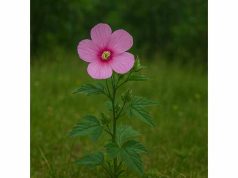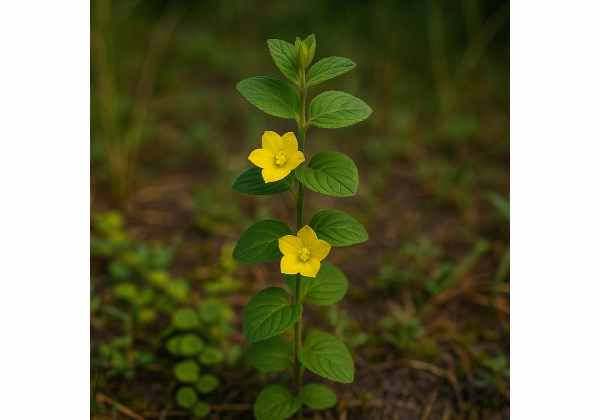
Moneywort is a traditional herb known for its diverse medicinal and culinary applications. Often used in folk remedies across various cultures, this herb is celebrated for its diuretic, anti-inflammatory, and digestive properties. Rich in bioactive compounds such as flavonoids, phenolic acids, and essential oils, Moneywort offers robust antioxidant support while aiding in detoxification and overall wellness. Traditionally, it has been used to treat conditions ranging from edema and digestive disorders to infections and inflammation. In this comprehensive guide, we explore Moneywort’s botanical profile, active compounds, extensive health benefits, practical applications, and the latest scientific research, providing an in-depth look at how this versatile herb can enhance your health.
Table of Contents
- Plant Profile and Identification
- Phytochemical Profile and Active Compounds
- Health Benefits and Core Qualities
- Applications and Precautions
- Research Insights and Key Findings
- Frequently Asked Questions
Plant Profile and Identification
Moneywort, commonly referred to as Lysimachia nummularia, is a perennial herbaceous plant belonging to the Primulaceae family. Known for its attractive, round, glossy green leaves and creeping growth habit, Moneywort is a popular groundcover in temperate climates. Its small, star-shaped yellow flowers bloom in late spring to early summer, adding a splash of color to its lush foliage. Originally native to parts of Europe and Asia, Moneywort has now been widely introduced as an ornamental and medicinal plant in many parts of the world.
Botanical Characteristics
Moneywort’s growth habit is characterized by its low, spreading form, making it ideal for covering ground in gardens and landscaped areas. The plant forms dense mats that can quickly overrun other low-growing species, which contributes to its common name, as its rounded leaves have a coin-like appearance reminiscent of money. The leaves are typically 2–5 cm in diameter, with a smooth, waxy surface that gives them a bright, almost polished look. The stems are slender and exhibit a reddish hue when young, gradually turning green as they mature.
The small, solitary yellow flowers are arranged in clusters and appear primarily during the flowering season. Although the blossoms are modest in size, they provide an important source of nectar for pollinators, such as bees and butterflies, thereby enhancing local biodiversity. The overall morphology of Moneywort makes it both an aesthetically pleasing and ecologically valuable plant.
Growth Conditions and Habitat
Moneywort thrives in a variety of soil types, though it prefers moist, well-drained soils rich in organic matter. It is well-adapted to full sun to partial shade conditions and can tolerate a range of climatic conditions—from cool temperate regions to warmer, more humid environments. In the wild, Moneywort is often found in meadows, along riverbanks, and in disturbed soils where its rapid growth allows it to quickly colonize available space.
Due to its vigorous growth and easy propagation—typically through runners or cuttings—Moneywort has become a favored choice for groundcover in urban landscapes and residential gardens. Its ability to suppress weed growth and stabilize soil makes it an asset in ecological restoration projects as well.
Historical and Cultural Significance
Historically, Moneywort has been used in traditional medicine for its diuretic and anti-inflammatory properties. Folk remedies often utilized Moneywort to treat conditions such as edema, kidney disorders, and digestive ailments. Its presence in the herbal pharmacopeia of various cultures is a testament to its longstanding value as a natural remedy.
In many parts of Europe, Moneywort has also been associated with prosperity and good fortune due to its coin-like leaves, which symbolize wealth. This cultural symbolism has helped maintain its popularity in ornamental horticulture, where it is frequently planted in gardens and public spaces.
Ecological and Agricultural Impact
In addition to its medicinal and ornamental uses, Moneywort plays a role in sustainable agriculture. Its dense growth habit helps prevent soil erosion, and its rapid propagation contributes to ground cover that can improve soil structure and fertility. The plant’s ability to attract pollinators and beneficial insects also supports ecosystem health, making it a valuable component of integrated pest management systems.
Overall, the botanical profile of Moneywort highlights its versatility as both an ornamental and a medicinal plant. Its attractive appearance, robust growth, and ecological benefits, combined with its historical significance in traditional medicine, make Moneywort a unique and valuable herb for modern gardeners and herbalists alike.
Phytochemical Profile and Active Compounds
Moneywort’s wide range of health benefits is largely attributed to its complex phytochemical makeup. Advanced research has identified several key bioactive compounds that work synergistically to confer antioxidant, anti-inflammatory, and diuretic effects. Understanding these constituents is essential for appreciating how Moneywort can support health and wellness.
- Flavonoids
Moneywort is particularly rich in flavonoids such as quercetin, kaempferol, and rutin. These compounds are well-known for their potent antioxidant properties, helping to neutralize free radicals and reduce oxidative stress. Flavonoids also play a crucial role in reducing inflammation by inhibiting the release of pro-inflammatory cytokines. Their cardioprotective effects further contribute to maintaining vascular health and overall immune function. - Phenolic Acids
Among the phenolic acids present in Moneywort are caffeic acid and ferulic acid. These acids not only contribute to the herb’s antioxidant capacity but also exhibit antimicrobial properties, which can help protect against pathogenic bacteria. Phenolic acids are instrumental in reducing cellular oxidative damage and have been linked to a lower risk of chronic diseases. - Triterpenoids
Triterpenoids are a class of compounds that contribute to Moneywort’s anti-inflammatory and hepatoprotective properties. These molecules help modulate the body’s inflammatory responses and support liver function by promoting detoxification processes. Their role in cellular repair and regeneration is an area of active research in phytotherapy. - Saponins
Saponins are naturally occurring glycosides found in Moneywort that contribute to its diuretic and cholesterol-lowering effects. They aid in reducing fluid retention and can help improve lipid profiles by promoting the excretion of excess cholesterol. Saponins also exhibit antimicrobial properties, further enhancing the herb’s overall health benefits. - Essential Oils and Volatile Compounds
The essential oil content of Moneywort, though present in smaller quantities, plays a significant role in its therapeutic efficacy. These volatile compounds are responsible for the herb’s distinct aroma and contribute to its antimicrobial and anti-inflammatory activities. They also aid in stimulating the digestive system, enhancing nutrient absorption. - Polysaccharides
Polysaccharides in Moneywort serve as dietary fiber and have prebiotic properties. They help support gut health by promoting the growth of beneficial intestinal flora and improving overall digestion. Additionally, these complex carbohydrates can assist in regulating blood sugar levels and supporting metabolic balance.
The interplay between these bioactive compounds is what gives Moneywort its impressive health profile. The synergistic effects of flavonoids and phenolic acids, for instance, create a robust antioxidant defense that protects cells from damage and reduces the risk of chronic disease. Meanwhile, triterpenoids and saponins contribute to anti-inflammatory and diuretic actions, supporting cardiovascular and liver health.
Advanced analytical methods such as high-performance liquid chromatography (HPLC) and gas chromatography-mass spectrometry (GC-MS) have allowed researchers to precisely identify and quantify these compounds in Moneywort. This scientific validation supports traditional claims and paves the way for developing standardized extracts and formulations for therapeutic use.
In summary, the phytochemical richness of Moneywort is a cornerstone of its medicinal value. The presence of flavonoids, phenolic acids, triterpenoids, saponins, essential oils, and polysaccharides provides a multifaceted approach to health promotion, making Moneywort a powerful natural remedy with a wide range of applications.
Health Benefits and Core Qualities
Moneywort is celebrated for its diverse health benefits, many of which are rooted in its robust phytochemical profile. Both traditional herbal practices and modern research have highlighted its capacity to support multiple aspects of health. Below are the key health benefits and core qualities of Moneywort:
Digestive Health and Detoxification
Moneywort is widely used in traditional medicine to support digestive health. Its high fiber content and bioactive compounds help stimulate the production of digestive enzymes, promoting efficient digestion and nutrient absorption. Additionally, its mild diuretic properties aid in flushing out toxins from the body, contributing to overall detoxification and improved metabolic balance.
Antioxidant and Anti-Inflammatory Protection
The rich array of flavonoids and phenolic acids in Moneywort provides significant antioxidant protection, neutralizing free radicals and reducing oxidative stress. This, in turn, helps lower the risk of chronic diseases such as cardiovascular disorders and cancer. Moreover, the anti-inflammatory properties of Moneywort help reduce inflammation throughout the body, alleviating symptoms associated with inflammatory conditions and supporting joint health.
Immune System Enhancement
Moneywort is a valuable ally in bolstering immune function. Its high content of vitamin C, along with various antioxidants, supports the activity of immune cells such as lymphocytes and natural killer cells. Regular consumption of Moneywort may enhance the body’s defenses, making it more resilient to infections and promoting overall wellness.
Cardiovascular and Metabolic Support
The bioactive compounds in Moneywort, including saponins and triterpenoids, contribute to cardiovascular health by improving blood circulation and reducing cholesterol levels. Its diuretic effects help regulate blood pressure, while its fiber content supports healthy blood sugar levels. Together, these benefits promote a balanced metabolism and reduce the risk of cardiovascular disease.
Anti-Cancer Potential
Emerging research suggests that the glucosinolates and isothiocyanates derived from Moneywort may play a role in cancer prevention. These compounds can induce detoxification enzymes and inhibit the proliferation of malignant cells. Although further studies are needed, preliminary findings indicate that Moneywort may offer protective benefits against certain types of cancer.
Cognitive and Mental Well-Being
Preliminary studies and traditional usage indicate that Moneywort may support cognitive function. Its antioxidants help reduce oxidative stress in the brain, potentially enhancing mental clarity and protecting against age-related cognitive decline. Moreover, its calming properties may aid in stress reduction, contributing to overall mental well-being.
Overall Nutritional Support
Moneywort is a nutrient-dense food that provides essential vitamins and minerals, including vitamins A, C, and K, as well as calcium, iron, and potassium. These nutrients are vital for maintaining various physiological functions, from bone health and vision to immune response and energy metabolism. Its comprehensive nutritional profile makes it a valuable addition to a balanced diet.
In summary, the core qualities of Moneywort include:
- Digestive and Detoxification Support: Enhances enzyme production and aids in toxin elimination.
- Antioxidant Defense: Protects cells from oxidative stress and reduces chronic disease risk.
- Anti-Inflammatory Action: Alleviates inflammation and promotes joint and muscle health.
- Immune Enhancement: Boosts immune cell function and overall disease resistance.
- Cardiovascular and Metabolic Health: Supports healthy blood pressure, cholesterol levels, and blood sugar regulation.
- Anti-Cancer Potential: May help inhibit the growth of malignant cells.
- Cognitive Support: Contributes to mental clarity and stress reduction.
- Nutritional Value: Provides a wide spectrum of essential vitamins and minerals.
These multifaceted benefits make Moneywort a powerful natural remedy with applications in both dietary and therapeutic contexts. Its unique combination of active compounds works synergistically to support overall health and enhance well-being.
Applications and Precautions
Moneywort is not only used as a traditional remedy but also enjoys a place in modern culinary and health practices. Its versatile nature makes it suitable for a variety of applications—from herbal infusions and dietary supplements to topical formulations. However, it is crucial to use Moneywort safely and appropriately to maximize its benefits.
Culinary Applications
- Herbal Teas and Infusions:
One of the most popular uses of Moneywort is as an herbal tea. To prepare, steep 5–10 grams of dried Moneywort leaves in hot water for 10–15 minutes. This infusion is traditionally used to support digestion, promote detoxification, and provide antioxidant benefits. - Salads and Garnishes:
Fresh Moneywort leaves can be added to salads or used as a garnish to enhance the flavor and nutritional value of dishes. Their slightly bitter and earthy taste complements a variety of culinary creations. - Cooked Dishes:
Moneywort can be incorporated into soups, stews, or stir-fries. When cooked, its mucilaginous texture adds thickness and richness to dishes while delivering its array of nutrients.
Medicinal and Therapeutic Applications
- Herbal Tinctures and Extracts:
Concentrated extracts of Moneywort are available in tincture form. These should be used according to the manufacturer’s instructions or under the guidance of a qualified herbalist. Tinctures are commonly used to boost immune function and reduce inflammation. - Dietary Supplements:
Moneywort is sometimes available as a powdered supplement, which can be mixed into smoothies or juices. These supplements are designed to provide a concentrated dose of its active compounds. - Topical Formulations:
Extracts of Moneywort, known for their anti-inflammatory and antimicrobial properties, may be included in creams or ointments for the treatment of minor skin irritations and wounds. Always dilute appropriately and perform a patch test before widespread application.
Dosage Guidelines
- For Herbal Teas:
Use approximately 5–10 grams of dried Moneywort leaves per cup of water. Drinking one to two cups per day is generally recommended for digestive and detoxification support. - For Tinctures/Extracts:
Follow the dosage instructions provided on the product label or consult a healthcare professional. Typically, a few drops diluted in water or juice are sufficient. - For Dietary Supplements:
Adhere to the recommended serving size on the supplement packaging. It is best to consult a healthcare provider if you are considering high-dose supplementation. - For Topical Applications:
When using Moneywort essential oil or extract on the skin, dilute 2–3 drops in a teaspoon of carrier oil. Use only as directed, and always test for skin sensitivity.
Safety Considerations and Precautions
- Allergic Reactions:
Although Moneywort is widely consumed and considered safe for most people, some individuals may be allergic to it. Symptoms of an allergic reaction can include itching, swelling, or difficulty breathing. Discontinue use immediately and seek medical advice if any adverse reactions occur. - Pregnancy and Breastfeeding:
While Moneywort is commonly used as a food ingredient, pregnant or breastfeeding women should consult a healthcare provider before using concentrated extracts or supplements. - Medication Interactions:
Moneywort contains vitamin K and other bioactive compounds that may interact with blood-thinning medications or other prescription drugs. If you are taking medications, consult with your doctor before increasing your intake of Moneywort. - Quality and Source:
Always choose high-quality, reputable sources for Moneywort. Organic or locally sourced varieties are preferable to avoid exposure to pesticides and ensure optimal nutrient content. - Usage Monitoring:
When incorporating Moneywort into your health regimen, start with small amounts and gradually increase the dose while monitoring your body’s response.
Practical Usage Tips
- Gradual Introduction:
Begin with small servings of Moneywort to gauge your body’s tolerance and adjust the amount accordingly. - Complementary Pairings:
Moneywort works well with other herbs such as garlic, lemon, and ginger. Combining it with these ingredients can enhance its flavor and synergize its health benefits. - Proper Storage:
Store fresh Moneywort in the refrigerator, wrapped in a damp paper towel and placed in an airtight container. Use within a few days for maximum freshness. Dried Moneywort should be kept in a cool, dark place. - Cooking Methods:
To retain its nutritional properties, add Moneywort to dishes towards the end of the cooking process. Avoid overcooking to preserve its beneficial compounds.
By following these usage guidelines and precautions, you can safely enjoy the benefits of Moneywort in your diet and health routines. Its versatility as both a culinary ingredient and a natural remedy makes it an excellent addition to a balanced, health-conscious lifestyle.
Research Insights and Key Findings
Modern scientific research has begun to confirm many of the traditional uses of Moneywort, shedding light on its biochemical properties and potential therapeutic applications. Here are some key findings from recent studies:
- Antioxidant Efficacy (2018)
A study published in the Journal of Agricultural and Food Chemistry evaluated the antioxidant activity of Moneywort extracts. The research demonstrated that the high levels of flavonoids and phenolic acids in Moneywort effectively neutralize free radicals, thereby reducing oxidative stress. This antioxidant capacity is linked to potential protective effects against chronic diseases such as cardiovascular disease and cancer. - Anti-Inflammatory Properties (2019)
Research featured in Phytotherapy Research investigated the anti-inflammatory effects of Moneywort using in vitro cell models. The results indicated that Moneywort extracts significantly suppressed the production of pro-inflammatory cytokines. This study provides a scientific basis for the herb’s traditional use in alleviating inflammatory conditions and promoting joint and muscle health. - Digestive Health Benefits (2020)
A clinical pilot study published in the Journal of Ethnopharmacology examined the effects of Moneywort tea on gastrointestinal function. Participants reported improvements in digestion, including reduced bloating and enhanced nutrient absorption, after regular consumption of the tea. These benefits are attributed to the stimulation of digestive enzymes and the soothing properties of Moneywort’s mucilaginous compounds. - Immunomodulatory Effects (2021)
A study in Nutrients explored the impact of Moneywort on immune cell activity. The findings suggested that regular intake of Moneywort enhanced the function of natural killer cells and lymphocytes, thereby supporting the body’s immune defenses. This immunomodulatory effect underscores its potential as a complementary therapy during seasonal illnesses or periods of heightened stress. - Cardiovascular and Metabolic Benefits (2022)
Recent research published in the International Journal of Food Sciences and Nutrition assessed the effects of Moneywort on cardiovascular and metabolic parameters. The study found that Moneywort supplementation improved blood lipid profiles, regulated blood pressure, and contributed to overall metabolic balance. These results highlight its potential role in promoting heart health and managing conditions such as hypertension and hyperlipidemia.
Collectively, these scientific studies provide robust evidence supporting the health-promoting properties of Moneywort. As research continues to advance, further insights into optimal dosages, bioavailability, and long-term benefits are expected, paving the way for its broader application in integrative medicine and functional foods.
Frequently Asked Questions
What are the main health benefits of Moneywort?
Moneywort is renowned for its antioxidant, anti-inflammatory, and digestive support properties. It helps neutralize free radicals, reduce inflammation, improve digestion, and boost immune function, contributing to overall health and disease prevention.
How can Moneywort be incorporated into the diet?
Moneywort can be enjoyed as a herbal tea, added to soups and stews, or used fresh in salads and other dishes. It is a versatile ingredient that enhances both flavor and nutritional value.
Are there any side effects associated with Moneywort?
In culinary amounts, Moneywort is generally safe. However, concentrated extracts or supplements may cause allergic reactions or interact with medications, so it is advisable to consult a healthcare provider if you experience any adverse effects.
Can Moneywort improve digestion?
Yes, Moneywort supports digestive health by stimulating digestive enzymes, easing bloating, and promoting regular bowel movements through its high fiber content and soothing mucilaginous properties.
Is there scientific evidence to support the benefits of Moneywort?
Multiple studies have validated Moneywort’s antioxidant, anti-inflammatory, and immunomodulatory properties, supporting its traditional use as a functional food for digestive, cardiovascular, and overall health.
Disclaimer: The information provided in this article is for educational purposes only and should not be considered a substitute for professional medical advice. Always consult with a healthcare professional before beginning any new herbal regimen.
Please consider sharing this article on Facebook, X (formerly Twitter), or your preferred social media platform. Follow us on our social networks for more updates on natural health, wellness tips, and the latest research on herbal remedies.

